Leading voices
During the COVID-19 pandemic, Schulich Medicine & Dentistry alumni have been leading voices at local and regional hospitals, on social media, in the news and supporting Canada’s hardest hit regions. Their expertise has been invaluable.
By Jennifer Parraga, BA’93
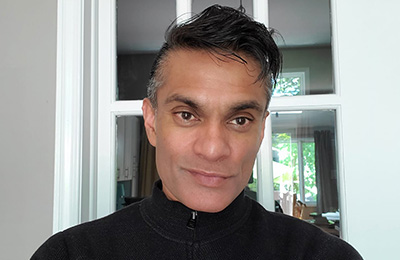 Raywat Deonandan, PhD’01
Raywat Deonandan, PhD’01
It was in early 2020 when Raywat Deonandan, PhD’01, sat down to crunch the numbers that would tell the story of the potential impact of the pandemic. A professor of epidemiology at the University of Ottawa, he said he was horrified with what his math revealed.
“I got depressed because I couldn’t see a way out of it without a vaccine,” he said. “I realized then that I had to do something. I wanted to play a role.”
Confident in his skills as a writer, educator, and presenter, he turned to his blog and hammered out his very first post on the pandemic. To his surprise, within days, reads rose to 500,000.
He realized very quickly how much public interest and thirst there was for clear communication about COVID-19 and what people needed to do to protect their health and safety and that of their families.
In short order, media outlets began turning to Deonandan as an expert and he began receiving up to 20 interview requests daily. After getting over the jitters of his first interview on the disease, Deonandan has become a regular across Canadian airwaves participating in thousands of interviews and increasing his activity on social media. His ‘I’ve got a face for radio’ posts have become a favourite across the country.
For the self-described optimist, Deonandan admits that the negativity, racism and threats on social media have been growing and that it can be personally draining. He has, however, been buoyed by supportive messages and he remains committed to sharing his guidance.
“I’m paid well to do a job, and part of that job is helping society in a time of crisis, so I will continue speaking out,” he said. “Getting through this pandemic is a population endeavour and we all need to do our part.”
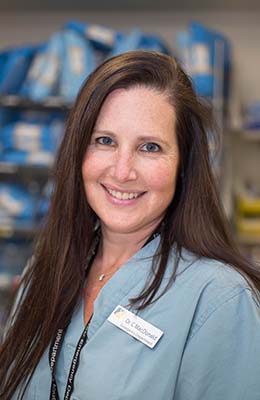 Dr. Christie MacDonald
Dr. Christie MacDonald
Resident Alumna
As the Co-Chair of Clinical Operations, Executive Committee for the Pandemic Incident Management at London Health Sciences Centre, Dr. Christie MacDonald has played a key role in navigating the pandemic in London. Working with her co-chair, Tom McHugh, Clinical Vice President, they were responsible for bringing all operational stakeholders together within the hospital to develop a response plan.
“When the first outbreak was declared, it was frightening for staff, patients and leaders. And it changed day-to-day, challenging us to be nimble to ensure infection control measures were in place.”
— Dr. Christie MacDonald
Early in the pandemic, her goal was to provide clear, consistent and transparent communication to her Emergency Medicine team and contribute to communication within the hospital. Emails sometimes numbering three to four per day communicating changes became the standard early in the pandemic when so little was known about COVID-19. And for a fast-moving environment and ever-changing situation, it was the only way to keep people informed and aware.
Daily meetings with leaders and health care teams were also held and focused on providing the highest quality care, how to keep staff healthy and safe, and how to continue providing educational opportunities to medical students and residents.
When the hospital was hit with a major outbreak at the end of 2020, MacDonald and the leadership team were forced to create cohorts and communities of staff and learners, with each individual assigned to one institution in the city and in many cases, to just one unit. Although initially challenging, this was one of the greatest methods to limit spread and outbreak.
“When the first outbreak was declared, it was frightening for staff, patients and leaders. And it changed day-to-day, challenging us to be nimble to ensure infection control measures were in place,” she said.
As a forward-facing leader, MacDonald was confident in the efforts of the team and is proud of how the hospital and region worked during a time of crisis.
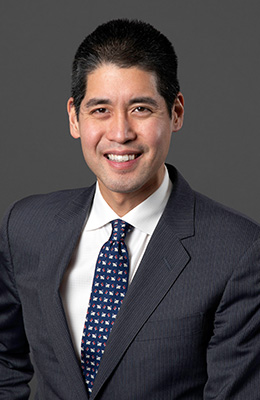 Dr. Lawrence Loh, MD’06
Dr. Lawrence Loh, MD’06
With more than 110,000 cases of COVID-19 investigated since March 2020, Ontario’s Peel Region is one of the province’s hardest hit areas. Dr. Lawrence Loh assumed the role of the Medical Officer of Health for the region just three days before he issued his first closure recommendations in the face of the first wave of the pandemic – an incomparable trial by fire.
Consulting and coordinating with his provincial colleagues and teams of nurses, public health physicians and epidemiologists throughout the pandemic, Loh has gained a reputation for making tough and sometimes controversial decisions. But whether it was the temporary closure of an Amazon warehouse, cancelling weddings and other life-event celebrations or moving schools online, Loh says that all his decisions were borne out of the data, science and an appreciation for Peel’s unique community context.
While he has become a fixture at weekly press conferences, Loh and his team have also made it a priority to reach the most vulnerable members in their community through innovative means, such as the Doses After Dark overnight vaccination clinic and the Real Peel ethnic media campaign. The strong relationships with community agencies and partners served as a key factor in the success of their outreach efforts.
“Whether it’s controlling transmission and investigating outbreaks, advocating for paid sick days and worker protections, or helping residents understand the data and access services such as testing, isolation centres, or vaccination, we’ve always known that it’s not enough to simply build it. It’s taken a broad collective effort to support our most vulnerable and turn the tide,” he said.
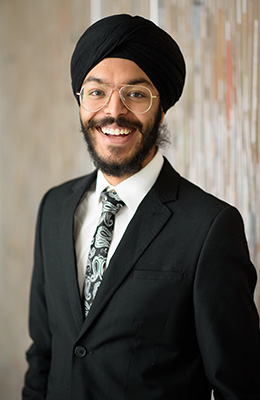 Sukhmeet Singh Sachal, MPH’18
Sukhmeet Singh Sachal, MPH’18
Sukhmeet Singh Sachal says that the skills he developed through the Master of Public Health Program at Schulich Medicine & Dentistry changed his life. The Program gave him the skills and tools he needed to become a leading voice within the Sikh community in Vancouver and eventually across Alberta and Ontario.
“I was there vaccinating people alongside my medical colleagues, and I saw how an idea to provide awareness and support in a space where people feel safe can really make a difference.”
— Sukhmeet Singh Sachal, MPH’18
While British Columbia’s universal mask mandate wasn’t introduced until late 2020, Sachal, now a thirdyear medical student, was troubled by the risk the pandemic presented to many of the elders in his community who congregated in places of worship. He took action.
Sachal worked with members of the local gurdwara to secure funding from the Clinton Foundation and contacted the Fraser Health Authority in support of a plan to create culturally sensitive infographics and awareness materials that shared details about safety measures. He also produced masks that could be tied around a turban.
He launched an awareness campaign, the COVID-19 Sikh Gurdwara Initiative, with a team of about 150 youth volunteers that was centred within gurdwaras. With signs using more commonly understood images and communication, such as the length of a turban to illustrate safe physical distancing, information stations teaching hand hygiene and mask distribution stations, the community became better informed in a place they could trust.
As restrictions increased, the volunteer team transitioned their communication to WhatsApp, Instagram and Facebook. And when vaccines became available, Sachal worked closely with the Fraser Health Authority to help with vaccine clinics in the gurdwara.
“I was there vaccinating people alongside my medical colleagues, and I saw how an idea to provide awareness and support in a space where people feel safe can really make a difference,” he said.
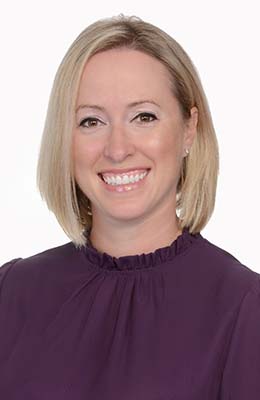 Dr. Jessica Summerfield
Dr. Jessica Summerfield
Resident Alumna
When Dr. Jessica Summerfield and her family left for a family trip to Disney World in the winter of 2020, COVID-19 was on their radar but not a real threat. But as the fast-moving virus began to infiltrate the Windsor community, Summerfield packed up her bags and returned home – leaving her family behind.
“Medicine is a calling, and at that moment, the only answer was to go back and support my colleagues in the assessment centre,” she said. “It was clear to me that my role as a physician was more important than any other role that I have.”
It would be three months until Summerfield would see her husband and twin daughters again. Transitioning from the assessment centre to the hospital and her own family practice, Summerfield has become an important voice representing the 460-plus physicians in the region as the President of the Essex County Medical Society.
She’s written reflection pieces for the We Spark Health Institute and the Ontario Medical Association and has been profiled by local news outlets including the Windsor Star and CTV Windsor. It was important to use her role to advocate for her colleagues, who she says aren’t their own best advocates.
“I wanted to speak up about different experiences that I have been going through. I wanted to give local physicians a voice, and explain what it’s like to be a front-line physician during these times.”
She’s grateful for the response from the public and proud of her colleagues, who have been phenomenal in providing care day in and day out.
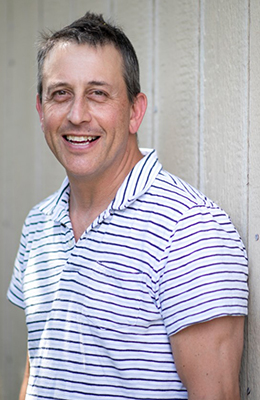 Dr. David Fisman, MD’94
Dr. David Fisman, MD’94
When the pandemic began, Dr. David Fisman had a private Twitter account. With the urging from his colleague Dr. Nathan Stall, MD’12, he made it public.
“He told me that he thought it would be useful for others in the general community to see what I was saying,” Fisman said.
An epidemiology Professor and infectious disease specialist, Fisman was also a member of Ontario’s COVID-19 Science Table. A brainchild of Dr. Steini Brown, the Science Table brought together a group of medical and research experts and health care leaders to discuss, review, analyze and report on evidence related to the pandemic – all in an effort to support how the province would respond.
While the Science Table and other forums allowed for a safe space for discussion, social media has been less forgiving. “Social media can be ugly,” Fisman said.
It hasn’t slowed Fisman down, however. To date, he has amassed more than 75,000 followers and his account carries the much-desired blue check mark. He remains firm in sticking it out, in an effort to provide expert opinion and to discredit disinformation about restrictions, transmission, safety and vaccines.
“I’m speaking out because I feel as a professional I have an obligation to share information as it emerges. I know that it will save lives, and I don’t see how I can keep the information to myself; it’s not what we do as medical professionals.”








